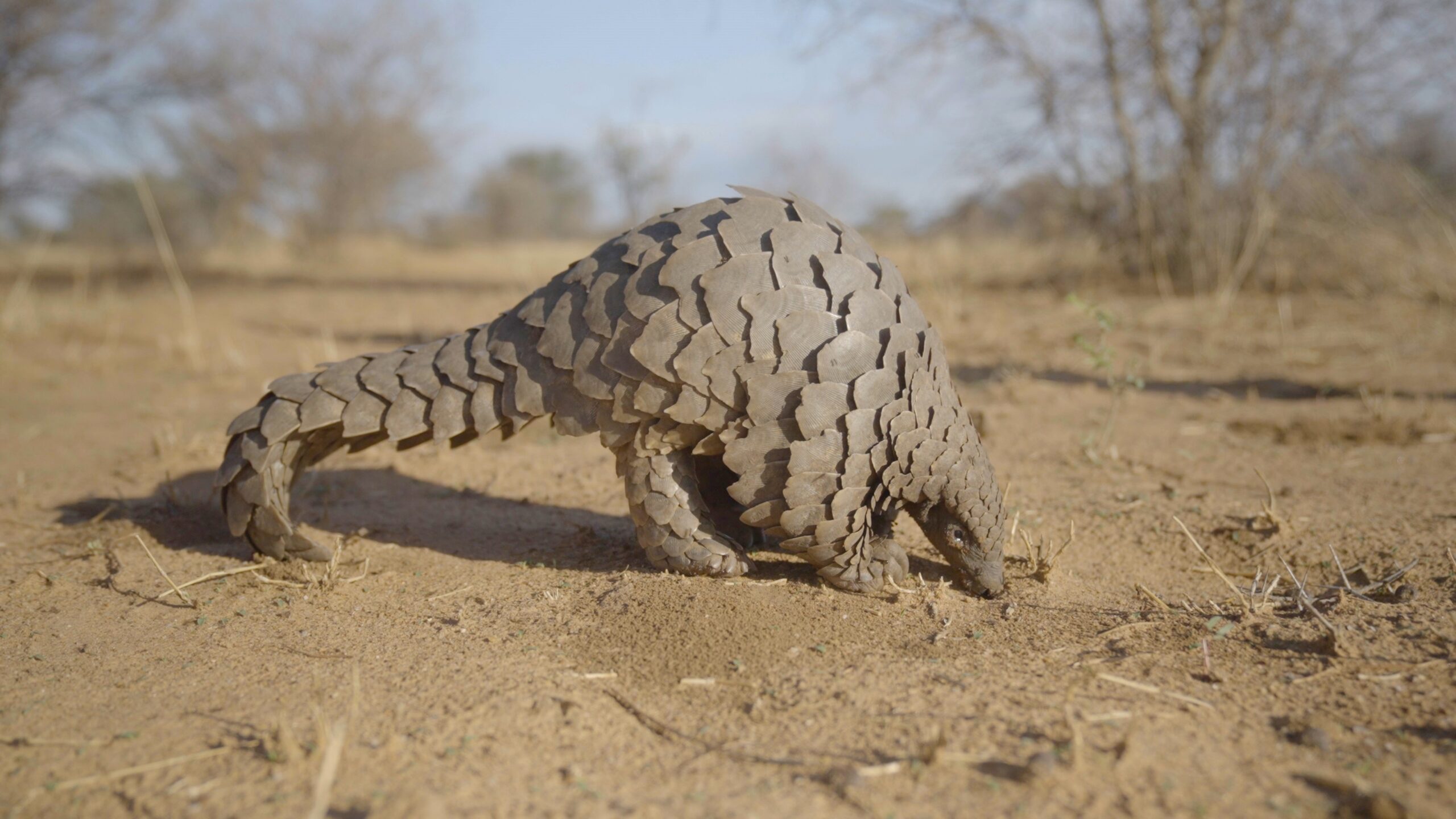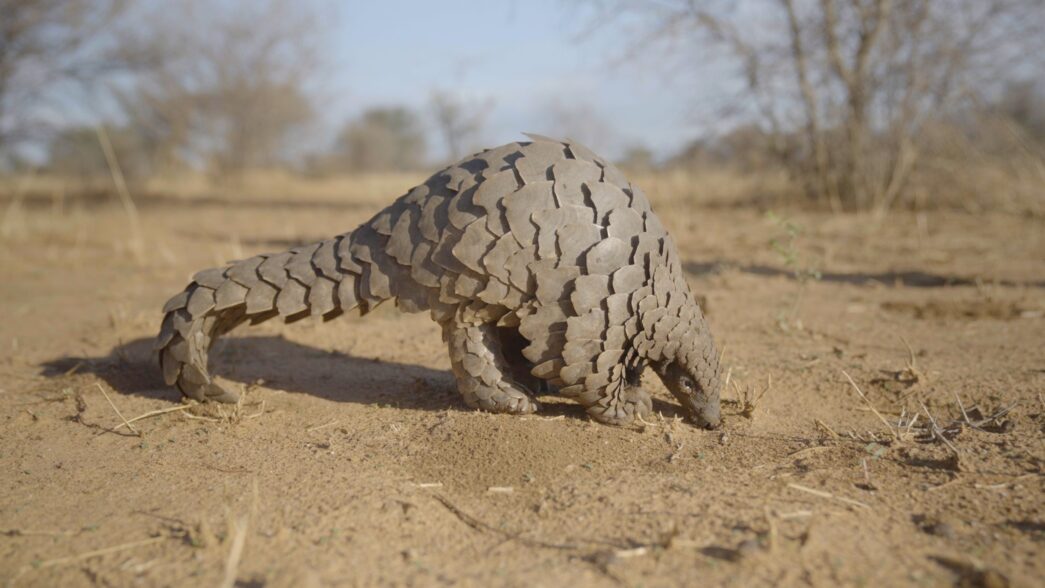Pangolin
Nigeria boasts some of the most diverse ecosystems in West Africa, but the surge in illegal wildlife trade is rapidly pushing species like pangolins and elephants toward extinction. Over the past decade, the country has gained international notoriety, not as a sanctuary for wildlife, but as a transit hub for trafficking some of the world’s most endangered species.
Nigeria has become a strategic logistics point, providing traffickers with weak oversight, corrupt intermediaries, and well-established smuggling routes. The country’s rich biodiversity is under severe threat due to rampant poaching, driven by increasing demand for wildlife products, especially in Asian markets.
THE THREAT TO WILDLIFE
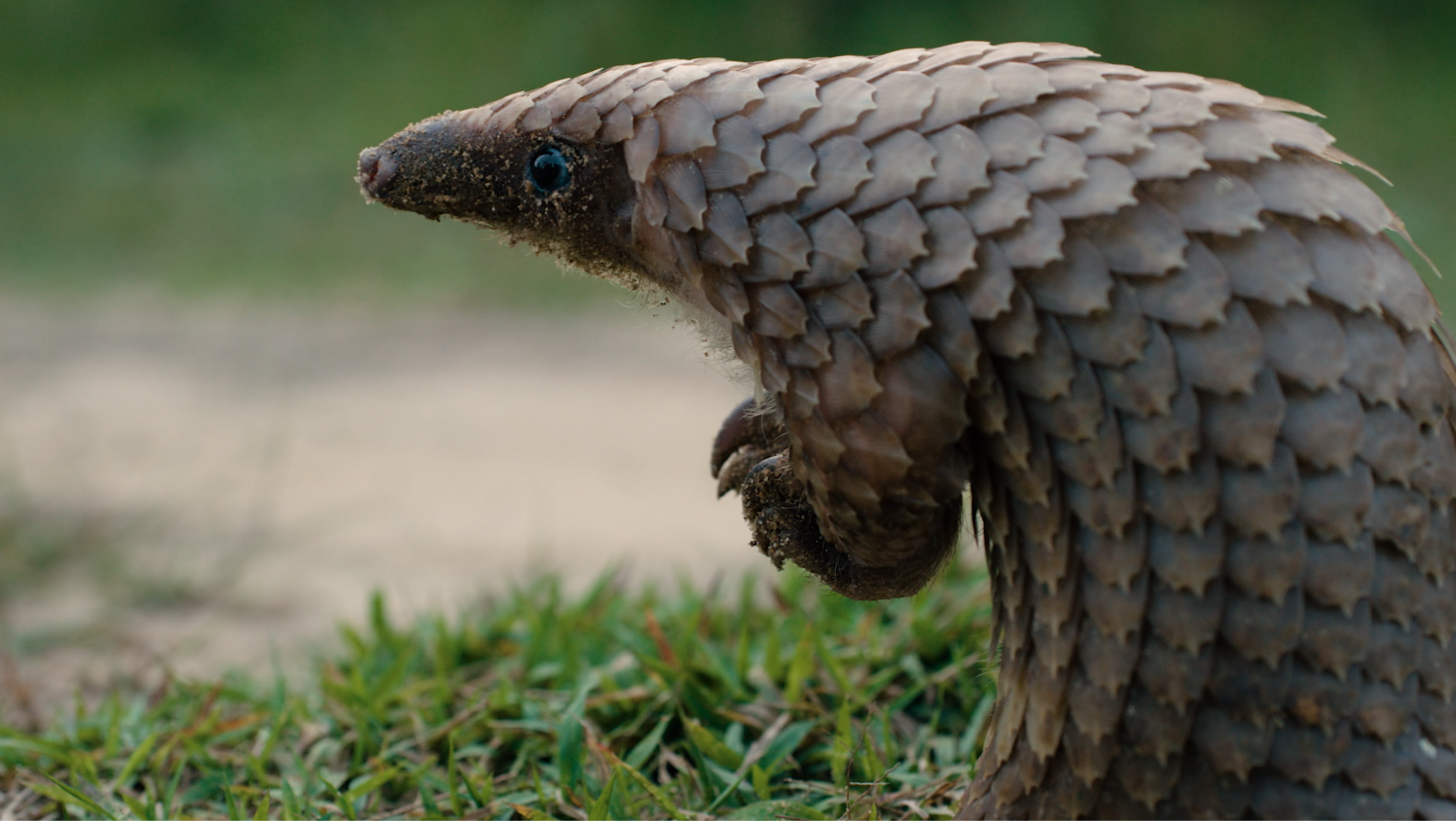
The rise in poaching activities in Nigeria has dire consequences for various species, particularly pangolins and elephants. Pangolins, often referred to as the most trafficked mammals in the world, have seen their populations plummet due to the high demand for their scales in traditional medicine and as delicacies. Their slow reproduction rate means that even modest poaching can decimate populations.
Advertisement
Between 2016 and 2019, Nigeria was linked to over half of all global pangolin scale seizures, according to the Environmental Investigation Agency (EIA). While pangolins are native to Nigeria and other parts of sub-Saharan Africa, the bulk of trafficked scales are not only sourced locally but also smuggled from neighbouring countries and funnelled through Nigeria’s porous borders and ports, especially Lagos, for shipment to Asia.
Olivia Swaak-Goldman, executive director of the Wildlife Justice Commission (WJC), told TheCable that about 70 percent of all significant pangolin scale and ivory seizures in 2019 were traced back to Nigerian seaports.
“Lagos groups responded to the increasing demand from Asian criminal networks by building strong relationships with corrupt facilitators, especially at Apapa Port, and establishing reliable supply networks, stable storage and packing facilities,” she said.
Advertisement
Similarly, elephants are at risk of extinction due to the trade in ivory, which is often used for ornamental purposes. These Nigerian networks became particularly appealing because they could supply both ivory and pangolin scales while offering what Swaak-Goldman described as a “one-stop shop” for trafficking.
Beyond the environmental toll, the trade undermines Nigeria’s security and economy. Wildlife trafficking is often linked to organised crime syndicates, which use similar routes for smuggling arms, drugs, and human beings.
The consumption of bushmeat in local markets also exacerbates the problem. Lions, chimpanzees, and gorillas — already under threat from habitat loss — are hunted for meat, while the black-market trade feeds off weak governance and a lack of awareness among citizens.
WEAK LEGAL FRAMEWORKS
Advertisement
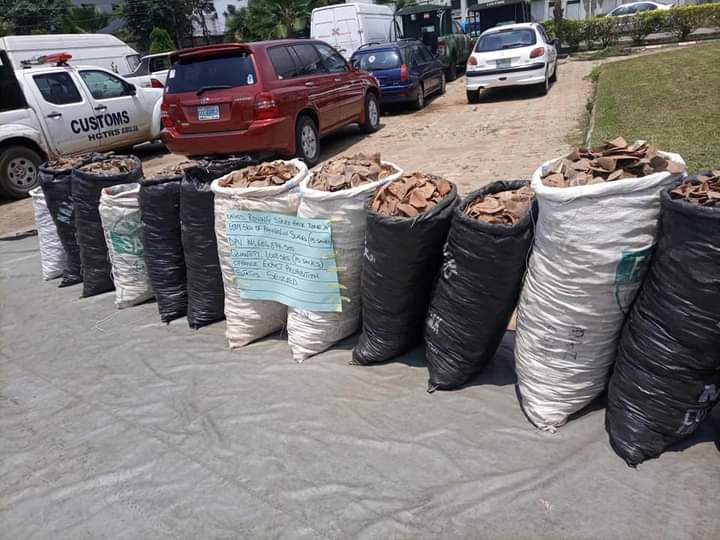
One of the primary challenges in combating wildlife trafficking in Nigeria is the inadequacy of laws and enforcement mechanisms. While Nigeria has ratified several international conventions, including the Convention on International Trade in Endangered Species of Wild Fauna and Flora (CITES), local enforcement remains frail. Despite having laws that criminalise wildlife trafficking, the enforcement is often inconsistent and ineffective. Many traffickers escape prosecution through informal settlements and bribes.
Swaak-Goldman emphasised that “prior to 2021, wildlife protection laws were not strongly enforced in Nigeria — the first wildlife arrests and prosecutions only began to occur from 2021 onwards”. She added that the lack of enforcement gave criminal networks an ideal environment to operate with seeming impunity.
The EIA’s legal framework analysis reveals that wildlife crimes in Nigeria are rarely prioritised. Many traffickers escape justice due to poor coordination among enforcement agencies, outdated laws, and a judiciary that is often uninformed or indifferent to the severity of environmental crimes.
In the last four years, the Nigeria Customs Service (NCS) has seized 21.5 metric tons of pangolin scales — more than half in 2024 alone — and 1.065 metric tons of ivory. These figures represent about 95 percent of all pangolin seizures in the country. The NCS, in collaboration with the WJC, has conducted operations leading to over 35 arrests and 12 convictions. Despite these efforts, prosecution rates remain low.
Advertisement
Corruption also plays a role, as exposed by a 2022 Premium Times/Mongabay investigation, which highlighted a decade of bribes and payoffs that helped transform Nigeria into a global wildlife trafficking hub.
But there are signs of progress. “Since 2021, Nigeria’s proactive law enforcement approach has significantly shifted the perception of wildlife crime in the country,” Swaak-Goldman noted. “It is now increasingly seen as a high-risk criminal activity, akin to drug trafficking. This has created a culture of fear and distrust among trafficking networks and disrupted their operations.”
Advertisement
More needs to be done. Effective law enforcement requires not just robust legal frameworks but also comprehensive training for personnel involved in wildlife crime prevention. Increased collaboration between investigative, prosecutorial, and judicial bodies is essential for expediting justice and ensuring that violators are held accountable.
A new Endangered Species Conservation and Protection Bill currently before the Nigerian parliament is expected to further strengthen enforcement powers and increase penalties if passed.
Advertisement
TARGETING TRAFFICKERS THROUGH INTELLIGENCE AND COLLABORATION
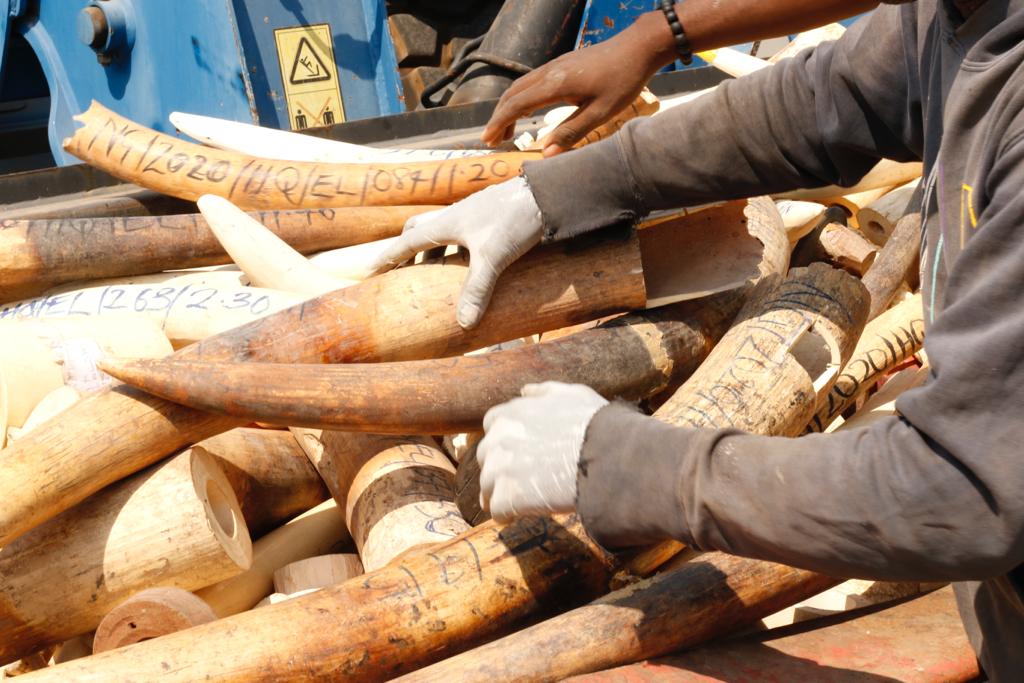
Wildlife trafficking is a transnational crime that demands international cooperation to disrupt the networks behind it. According to Swaak-Goldman, “intelligence sharing and joint investigations across the supply chain — from sourcing to transport and distribution — are essential”. She said there have been cases where intelligence gathered in Nigeria led to arrests and prosecutions in Vietnam, China, and Mozambique.
Advertisement
Swaak-Goldman noted that it’s important to leverage international frameworks like the UN Convention against Transnational Organized Crime (UNTOC) — which classifies wildlife crime as a serious offence punishable by a maximum penalty of at least four years imprisonment — to strengthen cross-border enforcement. “Governments can leverage the convention’s tools, including joint investigations, confiscation of criminal proceeds, and mutual legal assistance, to dismantle these networks more effectively,” she said.
At the national level, Swaak-Goldman said methods such as undercover operations, mobile phone data analysis, and financial intelligence have been key in building strong legal cases.
“We focus on identifying and targeting crime bosses, financiers, and high-value coordinators using in-depth, long-term investigations,” she explained.
She added that focusing on arrests and prosecutions, rather than simply seizing illegal products, has a more lasting impact on dismantling trafficking operations.
“Prosecutors play a vital role. Their early involvement ensures evidence is lawfully collected and admissible in court,” she said.
PUBLIC AWARENESS AND PARTICIPATION
Combating this crisis requires more than arrests and seizures; it demands a nationwide shift in consciousness. Many Nigerians remain unaware of the scale of wildlife crime and its implications on biodiversity, security, and public health.
“Communities play a critical role by staying informed and speaking out,” Swaak-Goldman said. She urged Nigerians to recognise that wildlife crime isn’t just an environmental issue but “a serious, transnational organised crime linked to corruption and other criminal activities”.
People can help by amplifying anti-wildlife crime messages on social media, engaging in awareness campaigns, and reporting suspicious activity. “Many countries have hotlines where crimes can be reported, and we encourage people to share information if they see or hear anything that could help detect potential wildlife crime,” she said.
To effectively confront wildlife trafficking, Nigeria must:
• Strengthen its legal framework by enacting stricter penalties for wildlife crimes and ensuring that prosecutors and judges are trained on environmental laws.
• Enhance inter-agency coordination, especially between NCS, NESREA, the police, and the judiciary, for intelligence sharing and joint operations.
• Invest in detection technology at ports and borders, and support customs officers with adequate training and resources.
• Foster international cooperation, especially with Asian countries where demand originates.
• Empower local communities to serve as custodians of biodiversity by linking conservation with sustainable livelihoods.
The threat to Nigeria’s pangolins and elephants is real and growing. But with sustained pressure on traffickers, strengthened laws, and collective national resolve, the country can dismantle the illicit economy fueling this crisis.
